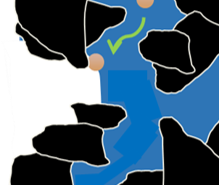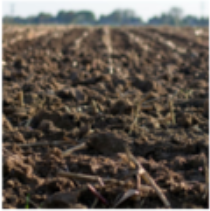Air-water interaction with soil
The process of air-water interaction with soil is the soil/sediment variant of the scavenging process occuring in air. The presence of air in soils has a huge effect on potential soil transport of nanoparticles. The exact reasons for this are unclear, but some hypothesize that nanoparticles are deposited at air/water interfaces in soils. Even though air-water interfaces are also charged and nanoparticles can thus attach to them in much the same way in which nanoparticles interact with surfaces, an additional surface tension term likely plays a role, which does not occur for classical attachment. Air-water interaction is most pronounced when a wetting front moves along the soil, potentially lifting up particles from soil surfaces.
 |
Used for
|
|
| Soil Air |
Fate descriptors |
Algorithms |
|
NanoFASE Report D7.2 Soil property - NM fate relationships \(\LARGE f\)non-saturated
|
\(\huge \alpha\) |
| Non-saturated correction factor Scavenging efficiency |
Read more |
Read also |
|
Consult the NanoFASE Library to see abstracts of these deliverable reports: NanoFASE Report D7.2 Soil property - NM fate relationships NanoFASE Report D7.4 Module for NM exposure prediction in soils to couple to overall framework |
Chen, L.; Sabatini, D. A.; Kibbey, T. C. G. Role of the Air–Water Interface in the Retention of TiO2 Nanoparticles in Porous Media during Primary Drainage. Environ. Sci. Tech. 2008, 42 (6), 1916-1921. |
Contact

Geert Cornelis
Swedish University of Agricultural Sciences (SLU)
Email: geert.cornelis@slu.se



